Gollancz Editors’ Favourite Masterworks: Darren
Having asked all of my colleagues to cough up a blog post on their favourite Masterworks, it’s now my turn to put my money where my mouth is**
It’s quite difficult to pick just one book from the excellent range of SF and Fantasy Masterworks – just ask Marcus, he didn’t even try! Different books appeal for different reasons and can move to the top of one’s list depending on mood or the context in which one is asked.
In some ways, my task is made more difficult by Gillian already choosing Mythago Wood, and Marcus choosing The Hitchhiker’s Guide to the Galaxy, both of which would certainly have been at the top of my list. So that’s two down. Nor can I choose Gene Wolfe‘s extraordinary Book of the New Sun (always among my front-runners) or Ursula K. Le Guin‘s wonderful The Word for World is Forest – both of which aren’t published until next year.
That still leaves any number of extraordinary works from which to choose from: proto-cyberpunk, space opera, Big Dumb Objects, post-apocalypses, to describe but a few. Although I fear I’ll never manage to carve out the time to re-read it, Brian Aldiss‘s Helliconia Trilogy had an enormous impact on me when I first read it. Likewise influential – for similar reasons of scale – are Larry Niven‘s Ringworld and Frank Herbert‘s Dune, and the stories of Connie Willis are always incredibly clever in both concept and writing.
What to choose? What to choose . . . ?
OK, if I have to pick one book, given the date, I choose Sir Arthur C. Clarke‘s mind-bending Childhood’s End (hardback | eBook). This book took the top of my head off when I first read it as a callow teenager. Beginning as an alien invasion story (of a sort) and containing one of the all-time great set pieces in written SF – an image so striking and irresistible that the producers of Independence Day should pay Clarke’s estate a royalty every time their movie is shown – it then moves off, via a poignant coming-of-age vignette, to cover no less a canvas than the ultimate destiny of the human race. And all in under 250 pages.
I re-read Childhood’s End a couple of times in my twenties and thirties, and then again when Arthur C. Clarke died in 2008. Still awesome, in the truest sense of the word. Clarke himself once described science fiction as ‘the only genuine consciousness-expanding drug’; as the man who wrote this extraordinary book, he would certainly know.
** Don’t try this at home kids – seriously, you don’t know where that pound coin has been . . .


